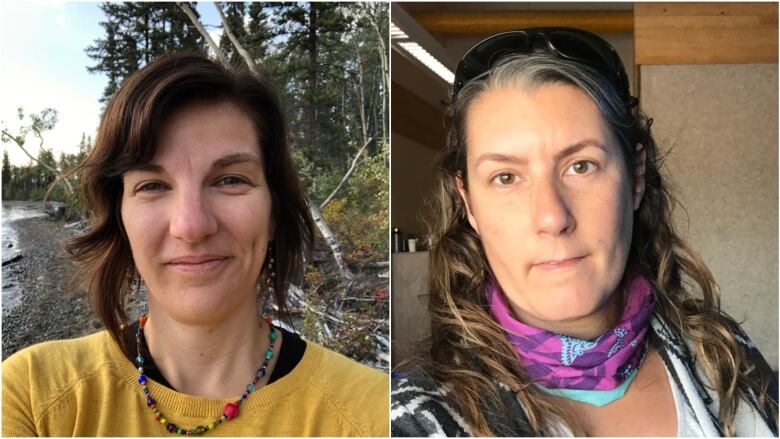Yukoners with long COVID hope new working group brings clarity to their illness
'It's changed my whole life over the last couple of years,' says Pam Godin

Every morning, Melissa Croskery wakes up with a tough decision: paycheque or her health.
She's one of the 150,000 people in Canada experiencing long-term COVID-19 symptoms, also known as long COVID.
As a self-employed, single mom of two, Croskery said living with post COVID-19 symptoms has affected her both financially and physically.
"For me right now, being self-employed, I have to choose to push through my symptoms as best I can to maintain an income, or to not get paid," said the occupational therapist who has experienced COVID-19 symptoms since 2020.
Croskery said some days are better than others. One day she could wake up feeling fine, the next, "I feel like I was hit by a bus."
"Things like being physically active with my children has been a challenge," she said. "Even things like maintaining my own home is some of the heavier work."
For the past two years, she's been seeing doctors and specialists to figure out a solution to her symptoms, which include post-exertional malaise (PEM), brain fog, general aches, and even rashes. So far, there's been no concrete answer.
Over 100 symptomshave been attributed to long COVID-19. According to Health Canada, some common symptoms include fatigue, memory problems, shortness of breath and general pain.
Now, Croskery is one of the Yukoners hoping a new working group formed by the territorial government willbring some clarity to their illness.
"I think it's a really positive move forward that the government, here and in other places, are starting to value and really engage people with lived experience in the process," said Croskery.
Health professionals, patients
TheGovernment of Yukon's working group was formed to learn more about the effects of long-term COVID-19 and possible solutions to support people who have the symptoms.
Caitlin Kerwin, director at the Health and Social Service department, said there's not enough information and data about long COVID yet.
"That's a large reason why we are establishing this group. This is quite a new area of research internationally so what we are trying to do is get a local lens on it," she said.
Kerwin said the working group's intention is to identify resources in the territory and look at how to make them more accessible.
The group will will rely on emerging research and personal experiences.
The working group consists of of an epidemiologist, health professionals, government officials and five people living with post-COVID conditions who are keen to share their stories.
Change in cognitive abilities
The individuals with lived experience include Croskery and Pamela Godin who also said she has experienced symptoms since 2020.

Godin said the long-term effects made her lose her job as the symptoms have includedphysical fatigue and mental capacity.
"I have a lot of dyslexia now that I never had before. I'm really bad at math when I was really exceptional at it, so that's a challenge," she said.
Godin used to work at Yukon University as a permafrost researcher. She's now focusing on her health since what used to be simple tasks, like writing and typing, have become increasingly difficult.
"I haven't been able to get back into research and science because of my cognitive abilities," she said.
Godin said her doctors have mentioned her symptoms mirror post-concussion signs.
"I'm just supposed to rest and try not to use my brain a lot, which can be difficult being someonewho is interested in research and science," she said.
"It's changed my whole life over the last couple of years."












_(720p).jpg)


 OFFICIAL HD MUSIC VIDEO.jpg)
.jpg)



























































































